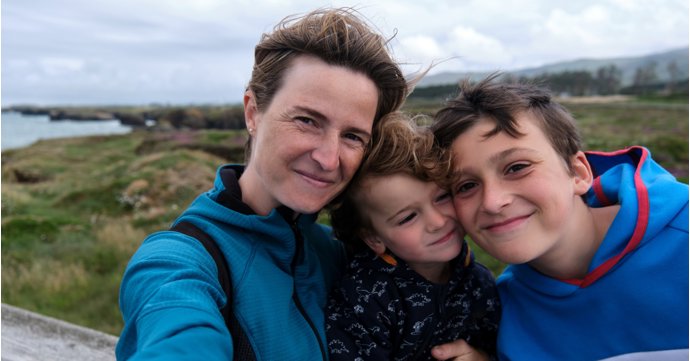Offering an exceptional standard of care to children in foster placements across Gloucestershire, independent agency Nexus Fostering was recently rated 'Outstanding' by Ofsted – partly thanks to its children's 'excellent' learning outcomes.
The Ofsted report makes specific reference to its dedicated head of education, Andy Plant, who is responsible for providing expert advice, support and resources to foster carers and staff – ensuring that looked-after children have access to appropriate educational provisions that meet their learning needs.
Access to his incredible support is a key reason for Gloucestershire families to consider becoming a foster carer with Nexus Fostering and SoGlos caught up with Plant to find out more about his fascinating role.

With a broad range of experience in the education sector, Plant has always been passionate about working with looked-after children.
After 13 years as a primary teacher, he moved schools to work with looked-after children with special educational needs, becoming the head teacher after a few years. Then followed another headship in an independent special school for looked-after children; some consultancy work in primary schools; and becoming the head teacher of a larger independent school.
'This experience over a 29-year period was an important learning curve to becoming the head of education at Nexus Fostering, where I support the children, carers and staff in all areas of education,' he said.
As part of his role, Plant is responsible for ensuring that looked-after children are supported to achieve their academic potential throughout their school life – setting them up for the best possible future.
He said: 'Often, this support isn't given straight to the child as it's done via their teachers, carers and a range of other professionals.
'The head of education's role is to support the carers, school staff and supervising social workers at Nexus Fostering, enabling them to feel informed and confident when addressing a school matter. This is done through providing appropriate training; the writing and supplying of education-specific documents, which can hopefully be easily read and understood; along with daily emails and phone calls.'
Under government guidance, looked-after children are entitled to receive various things throughout their school life, including a Personal Education Plan (PEP), which keeps a record of their educational progress and forms an important part of their overall care plan. Part of Plant's job is to make sure each child fostered via Nexus receives their entitlements, too.

It's Nexus Fostering's commitment to education that sets it apart from other council-led and private fostering agencies.
'One of the programmes that Nexus Fostering operates is the School Support Programme, which I understand is not done by another Independent Fostering Agency (IFA),' Plant explained.
'This is a programme whereby, when a particular child is finding school to be challenging due to their attachment and trauma difficulties, we go to the school and support the staff with their understanding of attachment and trauma, discussing a range of approaches that can be used within the school environment beyond the traditional approach of "rewards and sanctions." So far, the programme has taken place in fifteen schools and received some very good feedback.'
The headteacher from a school that has just finished the programme said: 'As part of the School Support Programme, we received three after-school sessions on the subject of supporting children with attachment difficulties and those who have experienced trauma in their lives.
'We invited support staff as well as teachers to attend these sessions and all staff found them extremely useful. The sessions enabled us to really think about the strategies we use with children with attachment difficulties and those affected by trauma and to question our own practice with a view to supporting these children better.
'Through the training materials, we realised that some strategies that we use regularly in school just do not work for these children and it is necessary to adapt the way we say and do things in order to break down the barriers that these children have.
'We found the discussion times at the end of each session particularly useful, as we were able to discuss specific children and scenarios within our school with each other, which we never have enough time to do, and to seek advice on the best way to support these children in school.'

As well as delivering the School Support Programme, Plant spends his working week writing and delivering training programmes; record keeping; and liaising with carers, supervising social workers, local authorities and virtual schools to ensure that the children fostered via Nexus Fostering are receiving the best education possible.
He believes it's important to build positive relationships with the wide range of professionals he works with, each of whom have the children's best interests at heart, and spends a lot of time providing advice and guidance to them; attending online school meetings when the supervising social workers or carers feel it would be helpful for them and the child concerned; as well as meeting with carers and children face-to-face.
'I'm a strong believer that learning can take many forms,' Plant continued.
'Although it's wonderful to see young people doing well in their SATs, GCSEs and other qualifications, it is equally rewarding to feel that I have played a small role in such things as improving a child’s confidence in a school situation; helping with an anxiety issue; or giving guidance with an Education, Health and Care Plan (EHCP).
'I hope that all of the schools, local authorities and virtual schools are aware that Nexus Fostering is there to work with them for the benefit of the children and carers.'




















